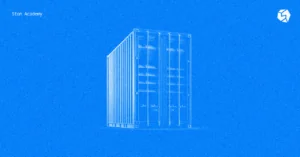-
How to get started: your first xStocks swap in under 5 minutesGet your first tokenized stock in minutes. Discover how xStocks bridge traditional market assets to TON and how to get them with no broker.
-
Liquidity pools: turn idle tokens into fee-collecting assets (2026 guide)Your 2026 guide to liquidity pools: discover how they work, learn about key risks like impermanent loss, and follow a five-minute checklist to get started.
-
Escrow swaps: a new execution layer inside OmnistonOmniston’s escrow swaps enable direct, resolver-driven trading on TON. Explore how this upgrade delivers better pricing and deeper liquidity.
-
xStocks: explore tokenized marketTrade tokenized stocks like AAPLx and TSLAx directly on TON with STON.fi. Read how xStocks bring traditional assets into the world of DeFi.
-
Swap.coffee Integrated Into OmnistonSwap.coffee is now live on Omniston, bringing a new liquidity source into the mix. Discover what is Swap.coffee, why this expansion matters and what you can gain from it.
-
Omniston widget for builders: a high-level guide to embed swaps fastThe Omniston widget embeds a dependable swap flow right inside your page, backed by the same routing layer that drives app.ston.fi. This article shows how it fits your stack, how to brand it safely, and the steps to go live.
-
What is a cross-chain decentralized exchange (CDEX)?Most DEXs are limited to one blockchain. A cross-chain DEX (CDEX) changes that. Learn how it works, why it matters, and how it keeps your swaps secure.
-
Omniston widget is live: plug-in swaps and a zero-code demo pathThe Omniston widget turns any surface — wallet, dashboard, game — into a trustworthy swap flow powered by aggregated liquidity.
-
From tickets to tools: practical NFT uses outside cryptoNFTs have moved past collectibles to solve real problems: verifying goods, securing tickets, and building trust. See how this shift changes what's possible.








